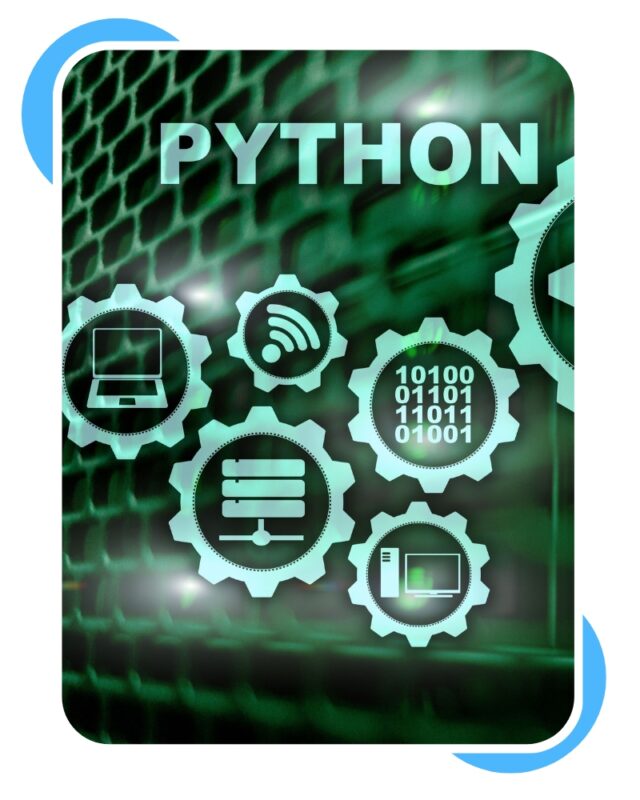
Python is a popular programming language in various applications, including web development, data analysis, machine learning, and more. Whether you are new to programming or an experienced developer, Python courses are available to help you learn and improve your skills.

How To Learn Python Courses?
Learning Python can be a rewarding experience, and there are several ways to go about it. Here are some tips for how to learn Python courses:
Many online platforms offer Python courses, like Udemy, Coursera, edX, and Code Academy. These courses range from beginner to advanced level and cover various topics, including Python syntax, data structures, algorithms, web development frameworks, and more. Some of these courses are free, while others require a fee to enrol.
Many universities offer Python courses as part of their computer science or data science programs. These courses typically provide more in-depth coverage of Python and related topics, such as data analysis, machine learning, and artificial intelligence. University courses are often more expensive than online courses, but they provide a structured learning environment with access to instructors and fellow students.
Python boot camps are intensive programs that teach students how to use Python in a short amount of time. Bootcamps are usually immersive, hands-on experiences that provide real-world projects and networking opportunities. Bootcamps can be expensive, but they can also offer a fast track to a new career in programming.
Many Python resources are available online, such as books, tutorials, and documentation for those who prefer to learn independently. Python has a large and supportive community, so finding answers to your questions is often just a Google search away.

Benefits of Learning Python:
Learning Python can bring various benefits, both personally and professionally. Here are some of the key benefits of learning Python:
Python is one of the most in-demand programming languages in today’s job market. It is widely used in many industries, such as data science, artificial intelligence, web development, and automation. Learning Python can open up many career opportunities and increase your employability.
Python is versatile and can be used for various purposes. It is commonly used for data analysis, machine learning, web development, automation, and scientific computing. Python is also used to develop popular applications such as YouTube, Instagram, and Dropbox.
Python is known for its simplicity and ease of use. It has a simple syntax that makes it easy to understand for beginners. Python also has many libraries and frameworks that make coding easier and faster.
Python has many developers who contribute to its development and create useful libraries and frameworks. The Python community is known for being supportive and helpful to beginners and experienced developers alike.
Python is a highly sought-after skill in today’s job market. Learning Python can lead to lucrative career opportunities in many industries, such as data science, artificial intelligence, web development, and automation. Python developers are in high demand and can earn high salaries.

Career After Learning Python
Many career opportunities are available for those who have learned Python, one of the most popular and versatile programming languages. Here are a few career paths you can consider:
As a Python developer, you can work on building web applications, desktop applications, games, and mobile apps. You can also work on software development for scientific and numerical applications.
Python is widely used for data analysis, visualization, and machine learning. You can work as a data analyst, data scientist, or machine learning engineer.
Python is a popular language for automation and scripting tasks. You can work in DevOps, which involves automating the deployment and management of software applications.
Python is used for building security tools, network scanning, and penetration testing. You can work as a cybersecurity analyst or engineer.
You can also consider a career in education and training, teaching Python programming to students, professionals, and organizations.
These are just a few examples of the many career paths available for Python developers. Depending on your interests and skills, you can choose a career that aligns with your goals and aspirations.

Salary After Learning Python in India
In India, the salary you can expect after learning Python depends on various factors, such as your experience, location, industry, and job role.
According to recent data from PayScale, the average salary for a Python developer in India is around Rs. 480,000 per year. However, this can vary widely depending on factors such as the size of the company, your level of experience, and the specific skills and tools you have expertise.
For example, entry-level Python developers in India can expect to earn salaries in the range of Rs. 200,000 to Rs. 500,000 per year. In contrast, experienced developers can make upwards of Rs. 1,500,000 per year or more, particularly if they have skills in related areas such as data science, machine learning, or artificial intelligence.
Learning Python can be a lucrative career in India, particularly given the growing demand for technology professionals with expertise in this area.

How to Succeed in a Python Course
To succeed in a Python career, there are several key steps you can take:
One of the most important aspects of succeeding in a Python course is time management. It’s crucial to create a study schedule that allows you to balance your coursework with other commitments. You should also set achievable goals and deadlines to stay on track. Prioritizing your time and avoiding procrastination is essential to maximize your learning experience.
Consistency is key when mastering any skill, and learning Python is no exception. It is essential to dedicate time to practising consistently.
Practice is essential when it comes to learning Python. It would be best to practice regularly and frequently to improve your skills. It means writing code, testing it out, reviewing examples and tutorials, and seeking feedback on your work. The more you practice, the better you will become at writing Python code.
Having a mentor can be incredibly helpful when learning Python. A mentor can guide, advise, and support you throughout your course. They can help you troubleshoot problems, suggest resources, and provide feedback on your work. Look for someone with experience in Python and willing to share their knowledge with you.
Networking can also be beneficial when learning Python. Join online communities or attend in-person meetups to connect with other Python learners and professionals. It can be a great way to get advice, learn about job opportunities, and stay current on the latest Python development trends. Building a network of like-minded individuals can also keep you motivated and engaged in your learning journey.
Common Challenges in Learning Python
Python is a popular programming language widely used for various applications, from data analysis to web development. While it is relatively easy to learn, especially for beginners, there are still some challenges that learners might encounter. Here are some common challenges in learning Python:
Python has a unique syntax that can take some time to get used to. It includes using whitespace and indentation instead of curly braces and semicolons, which differs from many other programming languages.
Python has many libraries and frameworks that can be overwhelming for beginners. While they can be handy for building complex applications, knowing which ones and how to use them can be difficult.
Python is an object-oriented programming language, which means that it relies heavily on the use of objects and classes. It can be challenging for learners who need to become more familiar with these concepts.
Debugging is an essential part of programming, but it can be challenging to identify and fix errors in Python code. It is especially true for beginners who may need to gain experience with debugging tools and techniques.
Python has several versions available, and code written for one version may not be compatible with another. It can frustrate learners who may encounter compatibility issues when working with different libraries and frameworks.
While Python has excellent documentation, it can be overwhelming for beginners. The sheer volume of information can be daunting, and finding the specific information needed to solve a particular problem can be challenging.
Overall, learning Python can be a rewarding experience, but it does require some effort and patience. However, learners can overcome these challenges with the right resources and support and become proficient Python developers.

Advantages and Disadvantages of Python Courses.
Python is a widely used programming language, and taking a course in it has advantages and disadvantages. Here are some of them:
- Versatility: Python is a universal language for various applications, including web development, data analysis, machine learning, and scientific computing.
- Easy to learn: Python has a simple and easy-to-learn syntax that makes it ideal for beginners. It also has a large and active community that provides extensive documentation and support.
- Large community: Python has a large and active community of developers, which means many resources are available for learning and troubleshooting. The district also provides a lot of open-source libraries and modules, making it easy for developers to reuse code.
- Career opportunities: Python is in high demand in many industries, especially in data science and machine learning. By taking a Python course, you can increase your chances of getting a job in these areas.
- Cross-platform compatibility: Python can run on various operating systems, such as Windows, Linux, and MacOS, making it easy to develop and deploy applications across multiple platforms.
- Limited performance: Python is an interpreted language that can be slower than compiled languages like C and C++. It can limit its performance in specific applications.
- Dynamic typing: Python is dynamically typed, leading to errors if not carefully managed. It can make debugging more difficult than in languages with static typing.
- Weak in mobile app development: Python is not widely used for mobile app development. While tools like Kivy and PyQT allow developers to create mobile apps using Python, they are not as popular as native app development languages like Java and Kotlin.
- Python’s simplicity and ease of use can make it too abstract for some developers, who prefer more low-level languages.
In conclusion, while there are some disadvantages to taking a Python course, the advantages far outweigh them. Python is a universal language that is easy to learn, has a large community, and offers many career opportunities. However, performance limitations and dynamic typing can be challenging, and there may be better choices for mobile app development or developers who prefer low-level languages.
FAQs Related to Python Courses
Sure, I would be happy to help! Here are some frequently asked questions related to Python courses:
Python is a popular high-level programming language for various tasks, including web development, data analysis, artificial intelligence, and more.
Python is a universal language that can be used for many tasks and is relatively easy to learn. It’s also in high demand in many industries, so knowing Python can be valuable.
Many resources are available for learning Python, including online courses, books, and video tutorials. Some popular online resources for learning Python include Codecademy, Udemy, Coursera, and edX.
You do not necessarily need specific skills to start learning Python, but a basic understanding of programming concepts can be helpful. Some common programming concepts you may want to familiarize yourself with include variables, data types, loops, and functions.
The time it takes to learn Python can vary depending on your goals and how much time you must devote to learning. Some people may be able to learn the basics of Python in a few weeks, while others may take several months to become proficient.
Python can be used for many tasks, including web development, data analysis, artificial intelligence, machine learning, scientific computing, and more. Some popular Python libraries and frameworks include Django, NumPy, pandas, TensorFlow, and PyTorch.
The cost of Python courses can vary widely depending on the method and the provider. Some courses may be free, while others may cost hundreds or thousands of dollars. Researching different options and choosing a system that fits your budget and learning goals is essential.
You do not need a computer science degree to learn Python, and many people learn Python on their own through online resources or community programs. However, a computer science degree or background can be helpful if you plan to pursue a career in programming or related fields.
